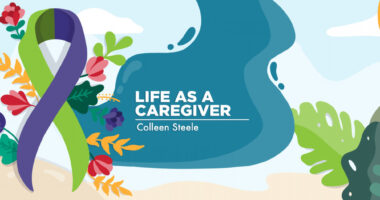Survivor’s Guilt Is Inevitable in Life with PH

Survivor’s guilt is something that I’ve struggled with over the past 14 years. Living with the rare and life-threatening disease that is PH, I continuously lose people I care for. Lately, it seems that every time I look at my social media, at least two or three PH patients have died. Living daily with PH is emotionally draining in itself; surviving after a loss can be overwhelming.
Cambridge Dictionary defines survivor’s guilt as “difficult and painful feelings caused by the fact that you’re still alive after a situation when other people died.” This term is often used to describe victims of war. News flash: Those of us who live as PHighters are PHighting our own war. Survivor’s guilt is real, and it is OK to experience the roller coaster of emotions that come with it. Just know that you’re not alone.
Living “long-term” with PH, I have met so many others living with or caring for others with PH. I have known people from around the world and of various ages for years, connecting online or even in person. These connections have impacted my life immensely, and I’m grateful to be part of such a phenomenal group. Because I choose to surround myself with others who have life-threatening illnesses, it’s inevitable to experience loss.
Loss is never easy, period. I get that PH is a progressive disease without a cure. That does not make it any less heartbreaking when I read about one more loss. Sadly, I hear the unrelenting words, “We all will die one day,” from people who do not live with disabilities and rare diseases. I have learned that many people tend to use inconsiderate and thoughtless words, showing no compassion.
When I hear of one loss after another, an internal battle burns inside of me. On one hand, I feel fortunate to have survived as long as I have; on the other, I feel a strong sense of guilt. It’s like a game of tug of war inside my heart and mind. This battle can bring up thoughts about my own death, such as “Why me?” or “Why not me?” This reality can cause anxiety and a constant reminder that PH is progressive.
Death and loss are uncomfortable, heartbreaking, and soul-searching all at once. When losses are too much, I tend to shy away from social media. But as challenging as it may be some days, the connection and support exchanged on these platforms are rewarding for those of us who live with life-threatening illnesses like PH. Grief continues to sting, as one never gets accustomed to loss, but knowing that support is available can be helpful.
I realize that death is unavoidable and I can’t change that fact. I am also aware that progressive, life-threatening diseases and death are inherently linked. Although I find this heartbreaking at times, I also find the rewards of being a part of such a supportive group challenging yet invigorating.
In one of my favorite books, “Tuesdays with Morrie,” Mitch Albom offers an incredible yet heart-wrenching story about living and dying. If you have not read this book, I would suggest it. As Morrie says, “Love is how you stay alive, even after you are gone.” Although losses are tough, the love and the memories of the person I’ve lost are what I must remember.
Albom also writes, “Death ends a life, not a relationship.” My hope is to leave positive, long-lasting memories and love years after I am gone.
I find that talking about my losses and my feelings helps me through the most difficult times. I also try to remember the memories that I have shared with the person I’ve lost, both the laughter and the tears. Often I just need a crying session so I can get it all out, and that is perfectly fine, too.
Have you experienced survivor’s guilt? Please share in the comments below.
***
Note: Pulmonary Hypertension News is strictly a news and information website about the disease. It does not provide medical advice, diagnosis, or treatment. This content is not intended to be a substitute for professional medical advice, diagnosis, or treatment. Always seek the advice of your physician or other qualified health provider with any questions you may have regarding a medical condition. Never disregard professional medical advice or delay in seeking it because of something you have read on this website. The opinions expressed in this column are not those of Pulmonary Hypertension News or its parent company, Bionews Services, and are intended to spark discussion about issues pertaining to pulmonary hypertension.








Michelle
Jen I too have had survivors quilt. I lived with Pulmonary Hypertension, Pulmonary Fibrosis and Scleroderma. In July of 2012 I was very fortunate to receive the gift of life. I had a bi-lateral lung transplant. This is where the guilt comes. So many friends of mine have gone on to get transplants and they just struggle with complications and in the end they pass. I feel horrible because some of those I said you just got to go for it and fight for life. It is hard to watch them pass on. I am truly blessed to have been given these past seven years. Prayers for everyone.